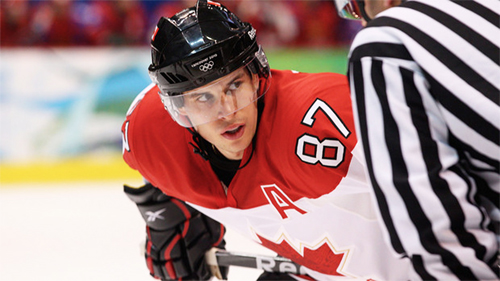After months of deliberation among the NHL, the NHL Player’s Association, the International Ice Hockey Federation and the Olympic Committee, an agreement was finally reached to allow professional hockey players from the NHL to compete in the 2014 Winter Olympics in Sochi, Russia. As part of the agreement, the NHL will halt the 2013–14 season so that an estimated 120 players can take part in the hockey competition scheduled for February 12–23.
NHL to take midseason break in Sochi

After months of deliberation among the NHL, the NHL Player’s Association, the International Ice Hockey Federation and the Olympic Committee, an agreement was finally reached to allow professional hockey players from the NHL to compete in the 2014 Winter Olympics in Sochi, Russia. As part of the agreement, the NHL will halt the 2013–14 season so that an estimated 120 players can take part in the hockey competition scheduled for February 12–23.
Though the decision wasn’t surprising, it came less than a year after a lengthy and contentious collective bargaining dispute between NHL players and ownership caused the cancellation of nearly half of the NHL’s 2012–13 schedule. Much of the opposition to Sochi came from owners frustrated with the high risk and limited financial returns of professional athletes participating in international tournaments, an issue that has been a source of friction ever since NHL players made their Olympic debut at the Nagano games in 1998.
In several instances over the course of the negotiations, NHL commissioner Gary Bettman had stated that the league would stay in business during the Olympics—a move that caused several NHL players, including star Washington Capitals forward Alex Ovechkin, to remark that they would take part in Sochi regardless of the league’s ruling.
In order to accommodate the Olympics, the league will shut down February 9–26. The NHL will undoubtedly lose revenue as a result of the Sochi games, since they will not own the rights to broadcast the tournament or be permitted to sell merchandise associated with it. But a boycott would have done much more harm to the NHL’s brand over the long term. The Olympics provide tremendous international exposure for NHL players both domestically and abroad, and the event brings hockey into markets where it would otherwise struggle to build an audience.
It’s inconceivable that other Winter Olympic events sports like bobsledding, downhill skiing or speed skating would take place without their best athletes involved, which makes this most recent objection from NHL owners all the more confounding. The return on investment that comes from promoting hockey in a competition that has a truly global audience may not be immediately quantifiable, but it is an incredible boon to the financial future of any sport fortunate enough to have a place on the schedule. NHL owners have every right to be wary of a two-week break in the action. Thankfully, cooler heads prevailed.






